‘Booster jabs expected to have big knock-on effect for protection against Covid’
Booster vaccines will be offered to millions of people from next week alongside annual flu jabs.

Booster jabs are expected to have a “very big knock-on effect” in protecting people against infection, hospital admission and death from coronavirus, the Government’s chief scientific adviser has said.
Sir Patrick Vallance said it is “very clear” that booster shots cause a “very big increase in antibody responses”.
Booster vaccines will be offered to millions of people in the UK from next week alongside annual flu jabs.
Scientists behind the CovBoost trial said that there was a “boost” in antibody levels generated among people who had a third dose in the clinical trial.
The study, which informed the Joint Committee on Vaccination and Immunisation (JCVI) decision for the booster programme, is due to report its findings publicly in early October.
The trial examined data on 2,833 people at 18 sites across the UK, half of whom had been fully vaccinated with AstraZeneca, half of whom had Pfizer.
Researchers measured side effects and the immune response in the body, including participants’ antibodies and other immunological responses.
At a Downing Street press conference on Tuesday, Sir Patrick said: “It’s very clear that booster shots cause a very big increase in antibody responses and that would be expected to have a very big knock-on effect for protection in terms of infection and hospitalisations and deaths, so I think the data look pretty clear on that.”
Those eligible for boosters include anyone aged 50 and over, people living and working in elderly care homes, and frontline health and social care workers.
All those who are clinically extremely vulnerable and anyone aged 16 to 65 in an at-risk group for Covid (who were included in priority groups one to nine during the initial vaccine rollout) will also be eligible for a jab.
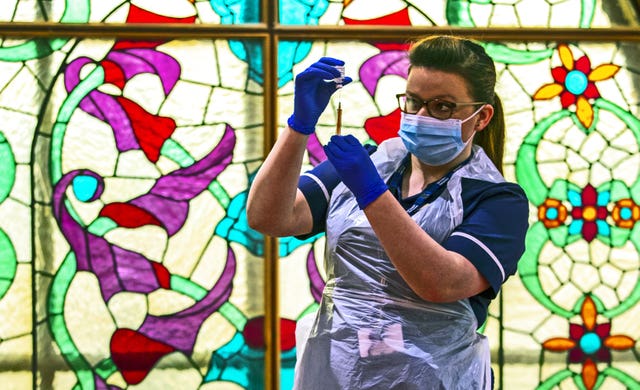
The Pfizer/BioNTech vaccine will be used as the booster dose for around 30 million people.
People could be able to get their Covid and flu vaccines on the same day, preferably with one shot in each arm, and the JCVI said people should receive their booster dose at least six months after they received their second coronavirus jab.
Health Secretary Sajid Javid told the Commons that the NHS would contact all those who are eligible and is preparing to offer the jabs from next week.
He told MPs: “There’s evidence that the protection offered by Covid-19 vaccines reduces over time, particularly (among) older people who are at greater risk, so booster doses are an important way of keeping the virus under control for the long-term.”
Wales, Scotland and Northern Ireland will join England in offering jabs.
Three vaccines have been approved as safe and effective as boosters, AstraZeneca, Pfizer and Moderna, but experts have decided to opt for Pfizer as a preference after studies showed it is well tolerated and works well as a booster.
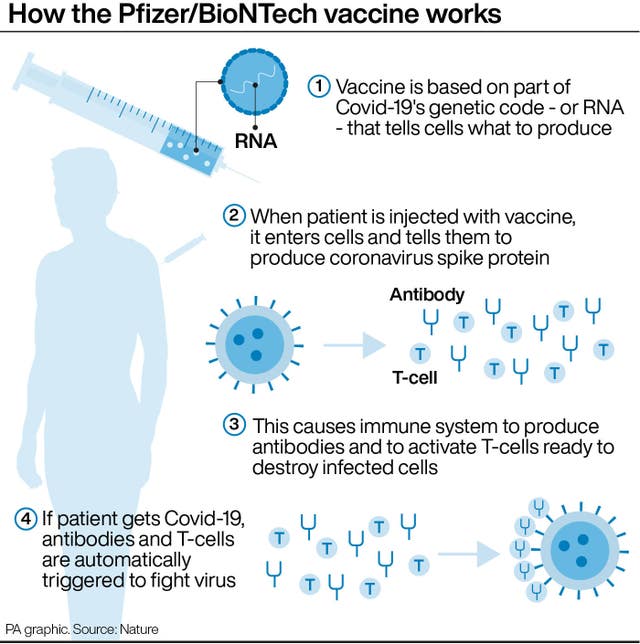
It can be given to people regardless of which vaccine people had previously.
The Moderna jab may be used as an alternative, but as a half-dose booster shot after studies showed it was effective at this dose, with few side-effects.
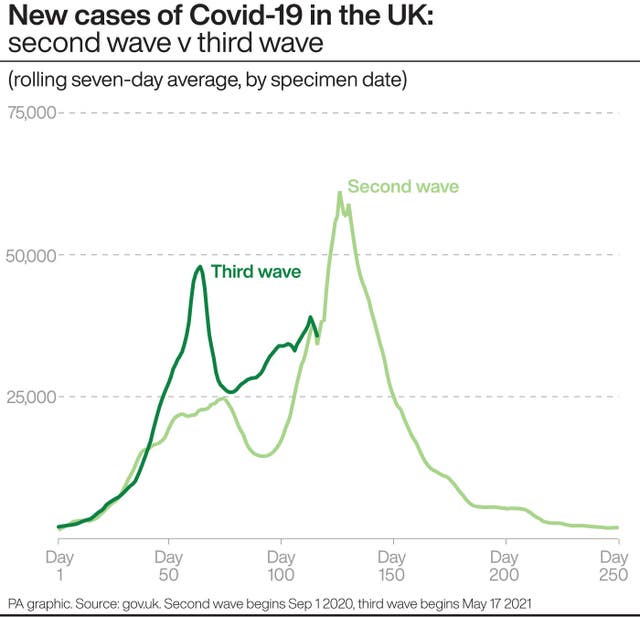
When there is more data, the JCVI plans to look at whether boosters should also be offered to healthy people under the age of 50, though there is less concern about immunity waning in this age group.
Professor Wei Shen Lim, chairman of Covid-19 immunisation for the JCVI, said the main aim of a booster programme “is to prolong that protection and reduce serious disease as we head towards the colder months”.
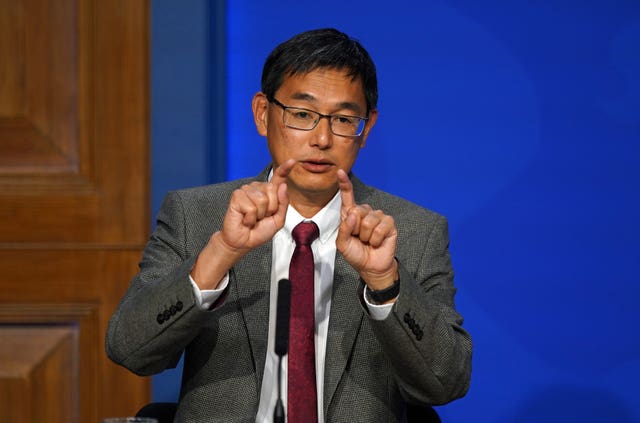
The advice does not imply there will be a booster programme every six months, he said.
The new guidance from the JCVI appears to differ to its interim guidance published in June, which said anyone over 16 who qualifies for a seasonal flu jab would be included in the booster campaign, which would have included millions of people with asthma.
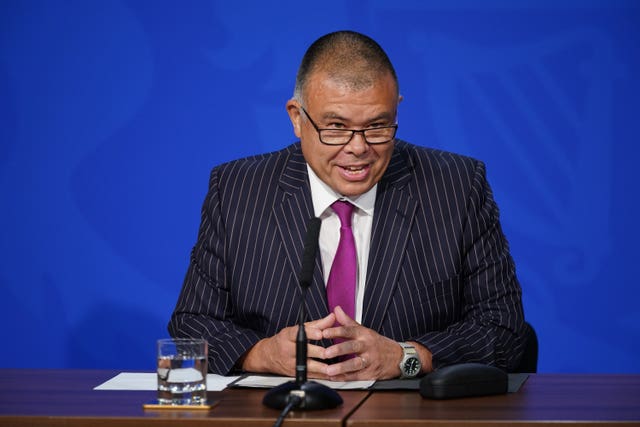
This has been scrapped, and only those in original priority groups one to nine will be offered a booster, meaning not all those who get the flu jab may be included.
Professor Jonathan Van-Tam, deputy chief medical officer for England, said: “We know this winter could be bumpy at times and we know that winter viruses such as flu and RSV (respiratory syncytial virus) are highly likely to make their returns.
“So with that in mind, the aim of the game, the mantra, is to stay on top of things.”
He said that if he was offered the flu jab and a Covid-19 booster at the same time, he would take it, and stressed that a booster campaign can offer the prospect of a “normal winter life”, adding that a third vaccine will “keep the lid on things Covid-wise”.
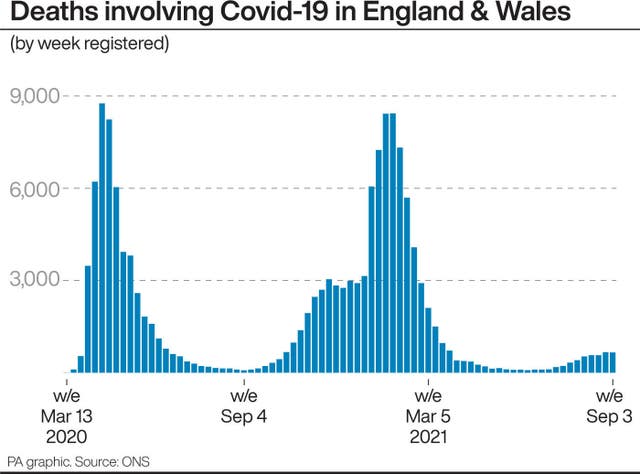
Prof Van-Tam compared administering booster jabs early rather than waiting for more evidence on post-vaccine immunity to campers who prepare their tents against an incoming storm saying it is “better to be pre-emptive and to be prepared and plan for the worst possibilities.”
He said the rollout will begin in a “short number of days” through GP surgeries and vaccination centres, adding that the booster programme needed to progress with “good pace”.
When asked why booster jabs are necessary considering there is only a small decrease in immunity months after the second dose, Prof Wei Shen Lim said this small drop in immunity can still lead to a large rise in hospital admissions.





